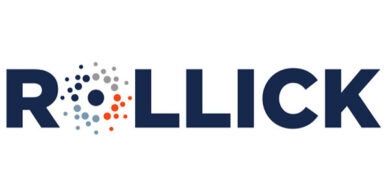Assess for success
Power of knowing
your numbers and
making adjustments
By Jeff Sheets
When talking to dealers, I always ask, “How is your dealership doing?” Most of the time, I get very generic answers or an “I don’t really know.” But Bob Sayles, the owner of The Power Barn, has learned the power of knowing his numbers to bring him greater business success.
From left to right, The Power Barn’s Renee Sayles, parts coordinator; Korie Gray, an A-level service technician; and Jenny Burchett, service coordinator, compare notes on the service department’s numbers in the Jackson, Mich., location.The Power Barn has locations in Jackson and Lansing, Mich. Early this season, Sayles noticed the numbers in the service department were lagging and the backlog of equipment was about to go beyond the targeted repair goal of a seven-day turnaround that he promises his customers. “Knowing what our turnaround goal is for the service department helps me identify a problem and attack it, so that we never have to tell a customer they have to wait longer than seven days in the peak of the season to get their equipment back,” Sayles said. “We take pride in making that goal a priority.”
Armed with concrete data, Sayles was able to recalibrate his team. He knew he had an inexperienced group of technicians, but they had been doing well before the spring season. It was time to order a few pizzas and call a team meeting to recast the vision for the service department goals and review the service process.
After the meeting, Sayles designated a part-time service tech to work on the easier repairs to get them turned quickly and get the team back on track. He added, “Several years ago, we never would have thought we could accomplish something like this. It isn’t about hiring more people. It is about helping the service technicians be more efficient.”
Sayles and The Power Barn team are a great example of how establishing goals for your departments ensures success. Sayles had a process in place and the technicians knew it, but they needed to be reminded of what the goal was so the process actually mattered. His quick assessment that something wasn’t going right early in the season made the difference and allowed him to straighten it out quickly before it impacted the overall business.
Once we assess and develop a strategy or a goal, then implementation is the key. We have to work hard to meet the numbers and reward the effort of the staff when they accomplish them. Here are some examples of what you might measure in your dealership:
Gross margin in parts
Sales of equipment
Efficiency of techs
Efficiency of entire department
Average sale per piece of equipment repaired
Backlog of equipment
Number of returns on equipment repaired
Number of customer service complaints
Average length of time each transaction takes at the parts counter
Number of parts sales lost because the part wasn’t in inventory
Number of parts returned
One of the things I have found over the years is that there are many similarities between dealerships, but every business has its unique challenges. That is why I am not saying that every dealership needs to be looking at exactly the same exact percentages or numbers that another dealer has set as goals. As you continue to establish these standards, it will help you manage your business much better with an eye on the future rather than just living in the present.
What we want to do is to determine the key items we think are important for our dealership and track those numbers to develop our targeted goal for each area. Tracking doesn’t happen on accident or automatically. It is a focused choice. I think every owner and manager should make it a point to create a habit to stop and analyze what was positive and negative in every department at the end of each week. It is vital for both you and your managers to provide input to make sure you are all seeing the same things. Those items need to be handled immediately and need to be prioritized, but the non-essentials can be put in a monthly report so it is easy to refer to when you are doing year-end planning or during slower times in the season. When you return to those monthly reports, you will begin to quickly see trends where your dealership is lacking because they repeatedly show up in your assessment. Those are natural places to begin putting systems of measurement in place to get stronger.
At this point, you are probably saying to yourself, “I don’t have time to do this every week.” I am not talking about a lot of time here. Try taking five or 10 minutes to put your thoughts on paper or in a Word document and have a quick conversation with your managers to hear their thoughts. When you realize a positive outcome has occurred during the week, then celebrate it with the individual employee or department team as soon as possible. Quick, positive feedback is part of good leadership and can motivate your employees even more to continue to be successful. When your managers are pointing out areas that need solutions, then recognize your employees are probably aware that things could be better. Maybe it’s time to order a pizza and recalibrate as a team.
Whether you’re building a new business and haven’t put any systems in place or you’re a seasoned business with metrics for everything, you can always get better. Here are a few ways you can sharpen your strategy:
* Dealers Visits: During slow times in the season, visit other dealerships and ask them what they are doing. You’ll get new ideas and assess your dealership versus theirs. When you see them on their own turf, you can easily see if their dealership matches what you would like yours to be. Is their service department more organized than yours? Is their showroom larger, or do they display equipment differently than you? Ask them what goals they use as standards or how they make adjustments when they sense problems.
* Dealer Peer Groups: A second option is partnering with similar dealerships across the country to look at your numbers versus theirs and get information on how they are assessing their business. These are commonly called “20 Groups.” even if there aren’t 20 members in the group. These groups will get together once or twice a year, so there is face-to-face interaction. But, every month, you will see the consolidated numbers of the members of the group.
* Consultants: Consultants offer many advantages because they have worked with a wide array of dealerships, so they can provide a realistic assessment of your dealership and what your standards should be, as well as industry-wide best practices. I think this is a great option if you are really looking to make changes. A consultant can be an outside partner who helps you focus on the things that you really need to be paying attention to for success.
It really does not matter how you get there. It’s that you seize the opportunity to make your business better. It’s about making small changes every day or week rather than large changes at the some distant point. A wise man once said, “Work on your business, not in your business,” and you will become more successful than most business owners. Those are great words to live by.
 Jeff Sheets is the founder and owner of OPE Consulting Services. For the past eight years, Sheets has worked extensively with hundreds of outdoor power equipment dealers to address all of their needs from marketing and inventory management to designing layouts of new facilities and helping rescue businesses that are in trouble, and more. He has a vast amount of experience of bringing “best practices” to OPE dealerships. For more information, he may be contacted at opeconsultingservices@gmail.com or (816) 260-5430.
Jeff Sheets is the founder and owner of OPE Consulting Services. For the past eight years, Sheets has worked extensively with hundreds of outdoor power equipment dealers to address all of their needs from marketing and inventory management to designing layouts of new facilities and helping rescue businesses that are in trouble, and more. He has a vast amount of experience of bringing “best practices” to OPE dealerships. For more information, he may be contacted at opeconsultingservices@gmail.com or (816) 260-5430.


